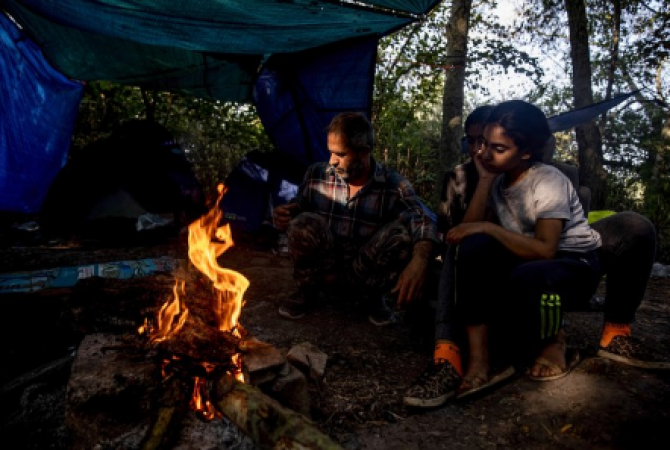
London: In an effort to carry out the promise made by Prime Minister Rishi Sunak to eliminate a significant backlog of more than 90,000 claims, the UK Home Office will expedite the asylum applications of more than 20,000 people from Iraq and Iran.
Before appearing for brief, in-person interviews with officials, asylum seekers from the two countries may be required to complete and return detailed questionnaires in English within 30 days, according to a leaked document seen by The Guardian. An application could be rejected if the request is not complied with.
92,601 asylum requests were still pending in the UK as of the end of June 2022. Out of 132,000 applications in total, 20,607 Iraqi and Iranian cases from this backlog remained unresolved at the end of the year. Approximately 80% of Iranian applicants are approved, compared to only 54% of Iraqi applicants.
The move was described by the Home Office as "a new phase in the programme to clear the legacy (application) backlog" by dividing applicants into "cohorts."
"In keeping with this strategy, the first cohorts we will give priority to are legacy claimants from Iran and Iraq, as these are the two nationalities with the highest proportion of unresolved claims," the statement continued.
"Over the next few weeks, Iranian and Iraqi legacy claimants who have not yet undergone substantive interview will start receiving questionnaires, which will be tailored to their circumstances and help shorten the time of any ensuing interviews.
We anticipate that targeted or shorter interviews will last between 30 and two hours once the necessary data has been received.
12,000 asylum seekers from Afghanistan, Eritrea, Syria, Yemen, and Libya were required to complete 11-page questionnaires as part of a similar programme that began in February. Officials claimed that numerous forms were submitted incorrectly, necessitating extensive follow-up interviews. According to a report in The Times newspaper, only 10% of forms were correctly submitted.
According to immigration attorney Colin Yeo, the announcement is premature if the simple cases haven't already been resolved.
"How this will help with more complicated cases is unclear. If they take longer than expected, there isn't much of a time savings since most asylum interviews last between two and three hours anyway.
"We remain concerned that rolling out this policy without further safeguards, including access to legal representation, an interpreter, or a full face-to-face interview, could result in the denial of protection and the return of torture survivors to their home countries to face persecution," said Sile Reynolds, the director of advocacy at the campaign group Freedom From Torture.
Also Read: European leaders gather in Iceland to assess the cost of the war with Russia
According to the Home Office, it is important to prevent asylum seekers from living in the UK for months or even years while they wait for a decision at great expense to the taxpayer. By accelerating decisions and enabling case workers to conduct briefer, more targeted interviews, this questionnaire will help us reduce the backlog of old asylum cases.
The provision of a safe and secure immigration system depends on individuals receiving one, like all asylum seekers, being subject to mandatory security checks against their claimed identities, including immigration and criminality checks on UK databases